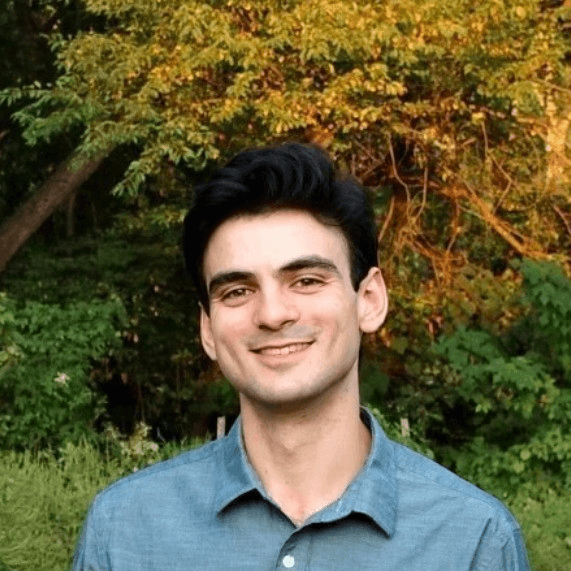Oct 26, 2024
-
Oct 28, 2024
Washington DC
AI Policy Hackathon at Johns Hopkins University




Join us for a weekend of collaboration, problem-solving, and networking as you work with like-minded peers to tackle real-world policy challenges related to AI. Participants will submit either a policy paper or a technological product. This opportunity is a great way to build your professional network and explore new career paths!
00:00:00:00
00:00:00:00
00:00:00:00
00:00:00:00
Join us for a weekend of collaboration, problem-solving, and networking as you work with like-minded peers to tackle real-world policy challenges related to AI. Participants will submit either a policy paper or a technological product. This opportunity is a great way to build your professional network and explore new career paths!
This event is ongoing.
This event has concluded.
Sign Ups
Entries
Overview
Resources
Schedule
Entries
Overview

Shaping the Future of AI Governance
Join us for a weekend of collaboration, problem-solving, and networking as you work with like-minded peers to tackle real-world policy challenges related to AI! Located in Washington D.C. or online via Discord. Final deliverables can be either technical demos or policy paper. No coding required and all backgrounds are welcomed!
Why Participate?
Skill development through hands-on experience in policy-making and AI applications
Network with industry leaders from OpenAI, Microsoft, and Apart Research, and AI governance scholars
Receive mentorship from experts in AI and policy
Present your solutions to tech policy experts & policymakers
Compete for prizes and recognition
Challenges and Themes
Below are some challenges that participants can work on! We have provided the following tracks, but the participants are welcomed to work on an AI policy-related challenge of their own.
AI Safety:
Challenge 1.1: Agentic System Governance
Partner: OpenAI
Description: Agentic AI systems—AI systems that can pursue complex goals with limited direct supervision— will likely be broadly useful if we can integrate them responsibly into our society. While such systems have substantial potential to help people more efficiently and effectively achieve their own goals, they also create risks of harm. An OpenAI paper discussed this governance issue and implicated a set of open questions. Participants are encouraged to work on a policy paper or a technical demo that addresses these issues.
Challenge 1.2: How Far Are We from Achieving ASI? Measuring the Progress of AI
Partner: OpenAI
Description: In the coming decades, AI will enable us to achieve feats that once seemed unimaginable. We are on the cusp of a new era—an "Intelligence Age" (Altman, 2024) —where AI will serve as a foundational tool for human progress, from personalized education and healthcare to groundbreaking scientific discoveries. This challenge invites participants to evaluate how close we reach Artificial Superintelligence (ASI), the next leap in AI’s evolution. Through technical prototypes, research, or theoretical frameworks, explore the key milestones we’ve reached and those still ahead. How can AI continue to amplify human capability and drive unprecedented prosperity?
AI and the Future of Work:
Partner: OpenAI
Description: As AI continues to transform industries, the nature of work is evolving at an unprecedented pace. In the near future, AI systems will serve as collaborative assistants, helping us solve complex problems and automating routine tasks. This challenge invites participants to explore the future of work in the AI era. How will AI reshape labor markets, create new roles, or redefine existing ones? Participants can develop policy frameworks, design AI-driven tools for workplace efficiency, or propose strategies to ensure AI enhances human potential while addressing shifts in job structures. The goal is to envision a future where AI and human collaboration lead to shared prosperity.
AI and Public Health:
Challenge Overview
The COVID-19 pandemic has highlighted the critical importance of rapid, data-driven decision-making in public health emergencies. AI and machine learning have immense potential to support real-time disease monitoring, early warning systems, resource allocation, and policy interventions. For this hackathon challenge, we’re asking teams to develop AI-powered solutions to enhance public health preparedness and emergency response capabilities. Your task is to identify a specific public health challenge and create an AI-driven tool or system that can help address it.
The Challenge:
Choose one of the following public health focus areas and develop an innovative AI-powered solution:
Disease Surveillance and Early Warning: Create an AI system that can rapidly detect, track, and predict the spread of infectious diseases using diverse data sources (e.g., electronic health records, social media, transportation patterns).
Resource Allocation and Logistics: Develop an AI-powered decision support tool to optimize the distribution of medical supplies, hospital beds, and other critical resources during public health emergencies.
Personalized Public Health Interventions: Design an AI platform to deliver customized health recommendations, nudges, and interventions to individuals based on their unique risk factors and behaviors.
Health Equity and Vulnerable Populations: Build an AI system that can identify and address disparities in health outcomes, access to care, and social determinants of health for marginalized communities.
AI & Sustainability
Challenge Overview:
Create an innovative solution that leverages AI to address a specific environmental sustainability challenge. Solutions can be either technical demonstrations (prototype/proof of concept) or policy proposals.
Challenge Statement:
Choose one of these sustainability challenges and propose either a technical or policy solution:
Urban Energy Optimization
Reduce energy waste in buildings
Optimize public transportation
Smart grid management
Waste Reduction
Improve recycling efficiency
Reduce food waste
Optimize supply chains
Climate Impact Monitoring
Track carbon emissions
Monitor deforestation
Predict environmental risks
AI & Law:
Partner: Center for Language and Speech Processing, Johns Hopkins University (PI: Benjamin Van Durme)
Description: Participants in this challenge will have access to CLERC, a massive US case law dataset, offering a rich resource for exploring legal discovery through AI. You can tackle existing tasks such as legal case retrieval, automate legal analysis generation, or develop innovative ideas and novel tasks based on this dataset. Whether improving retrieval accuracy or enhancing AI-driven legal reasoning, this challenge provides the opportunity to shape the future of legal tech by leveraging advanced machine learning on one of the largest legal corpora available.
Prize Pool: $3,000
Outstanding Solutions (3 teams)
$500 per team ($1,500 total)
Opportunity to present to policymakers and industry leaders
Recognition at award ceremony
Spotlight Awards (5 teams)
$200 per team ($1,000 total)
Recognition from expert judges
Networking with AI policy professionals
Special Awards
Best Innovation Award: $250
Diversity & Inclusion Award: $250
Independent award that can be won alongside other prizes
Recognizes teams promoting diverse perspectives in AI policy
Sign Ups
Entries
Overview
Resources
Schedule
Entries
Overview

Shaping the Future of AI Governance
Join us for a weekend of collaboration, problem-solving, and networking as you work with like-minded peers to tackle real-world policy challenges related to AI! Located in Washington D.C. or online via Discord. Final deliverables can be either technical demos or policy paper. No coding required and all backgrounds are welcomed!
Why Participate?
Skill development through hands-on experience in policy-making and AI applications
Network with industry leaders from OpenAI, Microsoft, and Apart Research, and AI governance scholars
Receive mentorship from experts in AI and policy
Present your solutions to tech policy experts & policymakers
Compete for prizes and recognition
Challenges and Themes
Below are some challenges that participants can work on! We have provided the following tracks, but the participants are welcomed to work on an AI policy-related challenge of their own.
AI Safety:
Challenge 1.1: Agentic System Governance
Partner: OpenAI
Description: Agentic AI systems—AI systems that can pursue complex goals with limited direct supervision— will likely be broadly useful if we can integrate them responsibly into our society. While such systems have substantial potential to help people more efficiently and effectively achieve their own goals, they also create risks of harm. An OpenAI paper discussed this governance issue and implicated a set of open questions. Participants are encouraged to work on a policy paper or a technical demo that addresses these issues.
Challenge 1.2: How Far Are We from Achieving ASI? Measuring the Progress of AI
Partner: OpenAI
Description: In the coming decades, AI will enable us to achieve feats that once seemed unimaginable. We are on the cusp of a new era—an "Intelligence Age" (Altman, 2024) —where AI will serve as a foundational tool for human progress, from personalized education and healthcare to groundbreaking scientific discoveries. This challenge invites participants to evaluate how close we reach Artificial Superintelligence (ASI), the next leap in AI’s evolution. Through technical prototypes, research, or theoretical frameworks, explore the key milestones we’ve reached and those still ahead. How can AI continue to amplify human capability and drive unprecedented prosperity?
AI and the Future of Work:
Partner: OpenAI
Description: As AI continues to transform industries, the nature of work is evolving at an unprecedented pace. In the near future, AI systems will serve as collaborative assistants, helping us solve complex problems and automating routine tasks. This challenge invites participants to explore the future of work in the AI era. How will AI reshape labor markets, create new roles, or redefine existing ones? Participants can develop policy frameworks, design AI-driven tools for workplace efficiency, or propose strategies to ensure AI enhances human potential while addressing shifts in job structures. The goal is to envision a future where AI and human collaboration lead to shared prosperity.
AI and Public Health:
Challenge Overview
The COVID-19 pandemic has highlighted the critical importance of rapid, data-driven decision-making in public health emergencies. AI and machine learning have immense potential to support real-time disease monitoring, early warning systems, resource allocation, and policy interventions. For this hackathon challenge, we’re asking teams to develop AI-powered solutions to enhance public health preparedness and emergency response capabilities. Your task is to identify a specific public health challenge and create an AI-driven tool or system that can help address it.
The Challenge:
Choose one of the following public health focus areas and develop an innovative AI-powered solution:
Disease Surveillance and Early Warning: Create an AI system that can rapidly detect, track, and predict the spread of infectious diseases using diverse data sources (e.g., electronic health records, social media, transportation patterns).
Resource Allocation and Logistics: Develop an AI-powered decision support tool to optimize the distribution of medical supplies, hospital beds, and other critical resources during public health emergencies.
Personalized Public Health Interventions: Design an AI platform to deliver customized health recommendations, nudges, and interventions to individuals based on their unique risk factors and behaviors.
Health Equity and Vulnerable Populations: Build an AI system that can identify and address disparities in health outcomes, access to care, and social determinants of health for marginalized communities.
AI & Sustainability
Challenge Overview:
Create an innovative solution that leverages AI to address a specific environmental sustainability challenge. Solutions can be either technical demonstrations (prototype/proof of concept) or policy proposals.
Challenge Statement:
Choose one of these sustainability challenges and propose either a technical or policy solution:
Urban Energy Optimization
Reduce energy waste in buildings
Optimize public transportation
Smart grid management
Waste Reduction
Improve recycling efficiency
Reduce food waste
Optimize supply chains
Climate Impact Monitoring
Track carbon emissions
Monitor deforestation
Predict environmental risks
AI & Law:
Partner: Center for Language and Speech Processing, Johns Hopkins University (PI: Benjamin Van Durme)
Description: Participants in this challenge will have access to CLERC, a massive US case law dataset, offering a rich resource for exploring legal discovery through AI. You can tackle existing tasks such as legal case retrieval, automate legal analysis generation, or develop innovative ideas and novel tasks based on this dataset. Whether improving retrieval accuracy or enhancing AI-driven legal reasoning, this challenge provides the opportunity to shape the future of legal tech by leveraging advanced machine learning on one of the largest legal corpora available.
Prize Pool: $3,000
Outstanding Solutions (3 teams)
$500 per team ($1,500 total)
Opportunity to present to policymakers and industry leaders
Recognition at award ceremony
Spotlight Awards (5 teams)
$200 per team ($1,000 total)
Recognition from expert judges
Networking with AI policy professionals
Special Awards
Best Innovation Award: $250
Diversity & Inclusion Award: $250
Independent award that can be won alongside other prizes
Recognizes teams promoting diverse perspectives in AI policy
Sign Ups
Entries
Overview
Resources
Schedule
Entries
Overview

Shaping the Future of AI Governance
Join us for a weekend of collaboration, problem-solving, and networking as you work with like-minded peers to tackle real-world policy challenges related to AI! Located in Washington D.C. or online via Discord. Final deliverables can be either technical demos or policy paper. No coding required and all backgrounds are welcomed!
Why Participate?
Skill development through hands-on experience in policy-making and AI applications
Network with industry leaders from OpenAI, Microsoft, and Apart Research, and AI governance scholars
Receive mentorship from experts in AI and policy
Present your solutions to tech policy experts & policymakers
Compete for prizes and recognition
Challenges and Themes
Below are some challenges that participants can work on! We have provided the following tracks, but the participants are welcomed to work on an AI policy-related challenge of their own.
AI Safety:
Challenge 1.1: Agentic System Governance
Partner: OpenAI
Description: Agentic AI systems—AI systems that can pursue complex goals with limited direct supervision— will likely be broadly useful if we can integrate them responsibly into our society. While such systems have substantial potential to help people more efficiently and effectively achieve their own goals, they also create risks of harm. An OpenAI paper discussed this governance issue and implicated a set of open questions. Participants are encouraged to work on a policy paper or a technical demo that addresses these issues.
Challenge 1.2: How Far Are We from Achieving ASI? Measuring the Progress of AI
Partner: OpenAI
Description: In the coming decades, AI will enable us to achieve feats that once seemed unimaginable. We are on the cusp of a new era—an "Intelligence Age" (Altman, 2024) —where AI will serve as a foundational tool for human progress, from personalized education and healthcare to groundbreaking scientific discoveries. This challenge invites participants to evaluate how close we reach Artificial Superintelligence (ASI), the next leap in AI’s evolution. Through technical prototypes, research, or theoretical frameworks, explore the key milestones we’ve reached and those still ahead. How can AI continue to amplify human capability and drive unprecedented prosperity?
AI and the Future of Work:
Partner: OpenAI
Description: As AI continues to transform industries, the nature of work is evolving at an unprecedented pace. In the near future, AI systems will serve as collaborative assistants, helping us solve complex problems and automating routine tasks. This challenge invites participants to explore the future of work in the AI era. How will AI reshape labor markets, create new roles, or redefine existing ones? Participants can develop policy frameworks, design AI-driven tools for workplace efficiency, or propose strategies to ensure AI enhances human potential while addressing shifts in job structures. The goal is to envision a future where AI and human collaboration lead to shared prosperity.
AI and Public Health:
Challenge Overview
The COVID-19 pandemic has highlighted the critical importance of rapid, data-driven decision-making in public health emergencies. AI and machine learning have immense potential to support real-time disease monitoring, early warning systems, resource allocation, and policy interventions. For this hackathon challenge, we’re asking teams to develop AI-powered solutions to enhance public health preparedness and emergency response capabilities. Your task is to identify a specific public health challenge and create an AI-driven tool or system that can help address it.
The Challenge:
Choose one of the following public health focus areas and develop an innovative AI-powered solution:
Disease Surveillance and Early Warning: Create an AI system that can rapidly detect, track, and predict the spread of infectious diseases using diverse data sources (e.g., electronic health records, social media, transportation patterns).
Resource Allocation and Logistics: Develop an AI-powered decision support tool to optimize the distribution of medical supplies, hospital beds, and other critical resources during public health emergencies.
Personalized Public Health Interventions: Design an AI platform to deliver customized health recommendations, nudges, and interventions to individuals based on their unique risk factors and behaviors.
Health Equity and Vulnerable Populations: Build an AI system that can identify and address disparities in health outcomes, access to care, and social determinants of health for marginalized communities.
AI & Sustainability
Challenge Overview:
Create an innovative solution that leverages AI to address a specific environmental sustainability challenge. Solutions can be either technical demonstrations (prototype/proof of concept) or policy proposals.
Challenge Statement:
Choose one of these sustainability challenges and propose either a technical or policy solution:
Urban Energy Optimization
Reduce energy waste in buildings
Optimize public transportation
Smart grid management
Waste Reduction
Improve recycling efficiency
Reduce food waste
Optimize supply chains
Climate Impact Monitoring
Track carbon emissions
Monitor deforestation
Predict environmental risks
AI & Law:
Partner: Center for Language and Speech Processing, Johns Hopkins University (PI: Benjamin Van Durme)
Description: Participants in this challenge will have access to CLERC, a massive US case law dataset, offering a rich resource for exploring legal discovery through AI. You can tackle existing tasks such as legal case retrieval, automate legal analysis generation, or develop innovative ideas and novel tasks based on this dataset. Whether improving retrieval accuracy or enhancing AI-driven legal reasoning, this challenge provides the opportunity to shape the future of legal tech by leveraging advanced machine learning on one of the largest legal corpora available.
Prize Pool: $3,000
Outstanding Solutions (3 teams)
$500 per team ($1,500 total)
Opportunity to present to policymakers and industry leaders
Recognition at award ceremony
Spotlight Awards (5 teams)
$200 per team ($1,000 total)
Recognition from expert judges
Networking with AI policy professionals
Special Awards
Best Innovation Award: $250
Diversity & Inclusion Award: $250
Independent award that can be won alongside other prizes
Recognizes teams promoting diverse perspectives in AI policy
Sign Ups
Entries
Overview
Resources
Schedule
Entries
Overview

Shaping the Future of AI Governance
Join us for a weekend of collaboration, problem-solving, and networking as you work with like-minded peers to tackle real-world policy challenges related to AI! Located in Washington D.C. or online via Discord. Final deliverables can be either technical demos or policy paper. No coding required and all backgrounds are welcomed!
Why Participate?
Skill development through hands-on experience in policy-making and AI applications
Network with industry leaders from OpenAI, Microsoft, and Apart Research, and AI governance scholars
Receive mentorship from experts in AI and policy
Present your solutions to tech policy experts & policymakers
Compete for prizes and recognition
Challenges and Themes
Below are some challenges that participants can work on! We have provided the following tracks, but the participants are welcomed to work on an AI policy-related challenge of their own.
AI Safety:
Challenge 1.1: Agentic System Governance
Partner: OpenAI
Description: Agentic AI systems—AI systems that can pursue complex goals with limited direct supervision— will likely be broadly useful if we can integrate them responsibly into our society. While such systems have substantial potential to help people more efficiently and effectively achieve their own goals, they also create risks of harm. An OpenAI paper discussed this governance issue and implicated a set of open questions. Participants are encouraged to work on a policy paper or a technical demo that addresses these issues.
Challenge 1.2: How Far Are We from Achieving ASI? Measuring the Progress of AI
Partner: OpenAI
Description: In the coming decades, AI will enable us to achieve feats that once seemed unimaginable. We are on the cusp of a new era—an "Intelligence Age" (Altman, 2024) —where AI will serve as a foundational tool for human progress, from personalized education and healthcare to groundbreaking scientific discoveries. This challenge invites participants to evaluate how close we reach Artificial Superintelligence (ASI), the next leap in AI’s evolution. Through technical prototypes, research, or theoretical frameworks, explore the key milestones we’ve reached and those still ahead. How can AI continue to amplify human capability and drive unprecedented prosperity?
AI and the Future of Work:
Partner: OpenAI
Description: As AI continues to transform industries, the nature of work is evolving at an unprecedented pace. In the near future, AI systems will serve as collaborative assistants, helping us solve complex problems and automating routine tasks. This challenge invites participants to explore the future of work in the AI era. How will AI reshape labor markets, create new roles, or redefine existing ones? Participants can develop policy frameworks, design AI-driven tools for workplace efficiency, or propose strategies to ensure AI enhances human potential while addressing shifts in job structures. The goal is to envision a future where AI and human collaboration lead to shared prosperity.
AI and Public Health:
Challenge Overview
The COVID-19 pandemic has highlighted the critical importance of rapid, data-driven decision-making in public health emergencies. AI and machine learning have immense potential to support real-time disease monitoring, early warning systems, resource allocation, and policy interventions. For this hackathon challenge, we’re asking teams to develop AI-powered solutions to enhance public health preparedness and emergency response capabilities. Your task is to identify a specific public health challenge and create an AI-driven tool or system that can help address it.
The Challenge:
Choose one of the following public health focus areas and develop an innovative AI-powered solution:
Disease Surveillance and Early Warning: Create an AI system that can rapidly detect, track, and predict the spread of infectious diseases using diverse data sources (e.g., electronic health records, social media, transportation patterns).
Resource Allocation and Logistics: Develop an AI-powered decision support tool to optimize the distribution of medical supplies, hospital beds, and other critical resources during public health emergencies.
Personalized Public Health Interventions: Design an AI platform to deliver customized health recommendations, nudges, and interventions to individuals based on their unique risk factors and behaviors.
Health Equity and Vulnerable Populations: Build an AI system that can identify and address disparities in health outcomes, access to care, and social determinants of health for marginalized communities.
AI & Sustainability
Challenge Overview:
Create an innovative solution that leverages AI to address a specific environmental sustainability challenge. Solutions can be either technical demonstrations (prototype/proof of concept) or policy proposals.
Challenge Statement:
Choose one of these sustainability challenges and propose either a technical or policy solution:
Urban Energy Optimization
Reduce energy waste in buildings
Optimize public transportation
Smart grid management
Waste Reduction
Improve recycling efficiency
Reduce food waste
Optimize supply chains
Climate Impact Monitoring
Track carbon emissions
Monitor deforestation
Predict environmental risks
AI & Law:
Partner: Center for Language and Speech Processing, Johns Hopkins University (PI: Benjamin Van Durme)
Description: Participants in this challenge will have access to CLERC, a massive US case law dataset, offering a rich resource for exploring legal discovery through AI. You can tackle existing tasks such as legal case retrieval, automate legal analysis generation, or develop innovative ideas and novel tasks based on this dataset. Whether improving retrieval accuracy or enhancing AI-driven legal reasoning, this challenge provides the opportunity to shape the future of legal tech by leveraging advanced machine learning on one of the largest legal corpora available.
Prize Pool: $3,000
Outstanding Solutions (3 teams)
$500 per team ($1,500 total)
Opportunity to present to policymakers and industry leaders
Recognition at award ceremony
Spotlight Awards (5 teams)
$200 per team ($1,000 total)
Recognition from expert judges
Networking with AI policy professionals
Special Awards
Best Innovation Award: $250
Diversity & Inclusion Award: $250
Independent award that can be won alongside other prizes
Recognizes teams promoting diverse perspectives in AI policy
Speakers & Collaborators
Archana Vaidheeswaran
Organizer
Archana is responsible for organizing the Apart Sprints, research hackathons to solve the most important questions in AI safety.
Abe Hou
Organizer & Judge
Abe Hou is a current senior at Johns Hopkins University, majoring in computer science, sociology, and math.At TPS, Abe is the current president. He organizes meetings and events
Amy Wang
Organizer
Amy Wang is a senior at Johns Hopkins University double majoring in Applied Mathematics and Computer Science. She is passionate to advocate for ethical use of AI
Idris Sunmola
Organizer
Idris Sunmola is a 3rd year Ph.D. student in the Computer Science department at The Johns Hopkins University. He does his research on machine learning and surgical robotics.
Angela Tracy
Organizer & Policy Track Judge
Angela Tracy is a senior at Johns Hopkins University double majoring in Political Science and Psychology. She is fascinated by the intersection of policy, society & human behavior
Joy Yu
Organizer & Policy Track Judge
Joy Yu is a junior at Johns Hopkins University, majoring in International Studies & Economics. As a part of the Technology and Policy Society, she works on the marketing & outreach
Andreas Jaramillo
Organizer & Judge
Andreas Jaramillo is a junior at Johns Hopkins University majoring in Computer Science. He is passionate in Computer Graphics and Game Development
Jace Lafita
Organizer & Policy Track Judge
Jace Lafita is a sophomore at Johns Hopkins majoring in Political Science and Cognitive Science and minoring in Computer Science.
Gabriella Waters
Workshop Speaker
Director of CoNA Lab researching cognitive & neurodiversity in AI systems. Principal AI Scientist at PROPEL Center leading AI evaluation and testing at NIST.
Anna Broughel
Speaker
Energy transition policy expert at JHU SAIS exploring intersection of sustainable energy and AI governance. VP of Communications at USAEE with expertise in policy analysis.
William Jurayj
PhD candidate at JHU Engineering researching language model safety and formal reasoning. Previously developed secure ML systems for cloud applications and trading platforms.
Monica Lopez
Speaker & Judge
CEO pioneering ethical AI adoption at Cognitive Insights. GPAI expert and Digital Economist Fellow bridging AI governance theory and practice in industry.
Zhengping Jiang
Judge
JHU PhD researcher focusing on calibrated NLP models & uncertainty estimation. Former Amazon Alexa AI scientist building safer language models.
Elliott Ash
Judge
ETH Zurich professor leading Human-AI Alignment at Swiss AI Initiative. Combines law, economics & ML to advance responsible AI development frameworks.
Andrew Anderson
Health policy expert studying AI-driven healthcare equity at NCQA. Focuses on integrating AI safely into medical delivery & quality assurance.
Jaime Raldua
Organiser
Jaime has 8+ years of experience in the tech industry. Started his own data consultancy to support EA Organisations and currently works at Apart Research as Research Engineer.
Jason Hausenloy
Judge
Judge, CHAI Researcher, previously at The International Center for Future Generations, Conjecture
James Bellingham
Speaker
Jim Bellingham has led worldwide autonomous marine robotics field from the Arctic to the Antarctic, is executive director of the Johns Hopkins Institute for Assured Autonomy.
Amelia Frank
Organizer & Policy Track Judge
She conducted independent research on the impact of AI in nuclear submarine warfare and strategic decision-making and continues to research in the military.
Seokhyun (Nathan) Baek
Organizer & Policy Track Judge
He hopes to concentrate on tech policy throughout his studies and encourage AI governance discussions on privacy. At TPS, he is currently expanding the group's scale of impact.
Kevin Xu
Technical Track Judge
Tech and entrepreneurship enthusiast, currently SWE Intern at Google. Formerly with Citadel, STEP Intern at Google, and Co-founder of Tunnel. Research experience in ML VLM
Yu Fan
Policy Track Judge
Yu Fan is a research associate and doctoral student at the Chair of Strategic Management and Innovation. In addition, he is an associated researcher at ETH AI Center
Lukas Petersson
HackTalk Speaker
Lukas recently founded vectorview, a model evaluations company to ensure the safety of AGI. Together with his cofounder, he recently went through the YCombinator program.
Speakers & Collaborators

Archana Vaidheeswaran
Organizer
Archana is responsible for organizing the Apart Sprints, research hackathons to solve the most important questions in AI safety.

Abe Hou
Organizer & Judge
Abe Hou is a current senior at Johns Hopkins University, majoring in computer science, sociology, and math.At TPS, Abe is the current president. He organizes meetings and events

Amy Wang
Organizer
Amy Wang is a senior at Johns Hopkins University double majoring in Applied Mathematics and Computer Science. She is passionate to advocate for ethical use of AI

Idris Sunmola
Organizer
Idris Sunmola is a 3rd year Ph.D. student in the Computer Science department at The Johns Hopkins University. He does his research on machine learning and surgical robotics.

Angela Tracy
Organizer & Policy Track Judge
Angela Tracy is a senior at Johns Hopkins University double majoring in Political Science and Psychology. She is fascinated by the intersection of policy, society & human behavior

Joy Yu
Organizer & Policy Track Judge
Joy Yu is a junior at Johns Hopkins University, majoring in International Studies & Economics. As a part of the Technology and Policy Society, she works on the marketing & outreach

Andreas Jaramillo
Organizer & Judge
Andreas Jaramillo is a junior at Johns Hopkins University majoring in Computer Science. He is passionate in Computer Graphics and Game Development

Jace Lafita
Organizer & Policy Track Judge
Jace Lafita is a sophomore at Johns Hopkins majoring in Political Science and Cognitive Science and minoring in Computer Science.

Gabriella Waters
Workshop Speaker
Director of CoNA Lab researching cognitive & neurodiversity in AI systems. Principal AI Scientist at PROPEL Center leading AI evaluation and testing at NIST.

Anna Broughel
Speaker
Energy transition policy expert at JHU SAIS exploring intersection of sustainable energy and AI governance. VP of Communications at USAEE with expertise in policy analysis.

William Jurayj
PhD candidate at JHU Engineering researching language model safety and formal reasoning. Previously developed secure ML systems for cloud applications and trading platforms.

Monica Lopez
Speaker & Judge
CEO pioneering ethical AI adoption at Cognitive Insights. GPAI expert and Digital Economist Fellow bridging AI governance theory and practice in industry.

Zhengping Jiang
Judge
JHU PhD researcher focusing on calibrated NLP models & uncertainty estimation. Former Amazon Alexa AI scientist building safer language models.

Elliott Ash
Judge
ETH Zurich professor leading Human-AI Alignment at Swiss AI Initiative. Combines law, economics & ML to advance responsible AI development frameworks.

Andrew Anderson
Health policy expert studying AI-driven healthcare equity at NCQA. Focuses on integrating AI safely into medical delivery & quality assurance.

Jaime Raldua
Organiser
Jaime has 8+ years of experience in the tech industry. Started his own data consultancy to support EA Organisations and currently works at Apart Research as Research Engineer.

Jason Hausenloy
Judge
Judge, CHAI Researcher, previously at The International Center for Future Generations, Conjecture

James Bellingham
Speaker
Jim Bellingham has led worldwide autonomous marine robotics field from the Arctic to the Antarctic, is executive director of the Johns Hopkins Institute for Assured Autonomy.

Amelia Frank
Organizer & Policy Track Judge
She conducted independent research on the impact of AI in nuclear submarine warfare and strategic decision-making and continues to research in the military.

Seokhyun (Nathan) Baek
Organizer & Policy Track Judge
He hopes to concentrate on tech policy throughout his studies and encourage AI governance discussions on privacy. At TPS, he is currently expanding the group's scale of impact.

Kevin Xu
Technical Track Judge
Tech and entrepreneurship enthusiast, currently SWE Intern at Google. Formerly with Citadel, STEP Intern at Google, and Co-founder of Tunnel. Research experience in ML VLM

Yu Fan
Policy Track Judge
Yu Fan is a research associate and doctoral student at the Chair of Strategic Management and Innovation. In addition, he is an associated researcher at ETH AI Center
Registered Jam Sites
Register A Location
Beside the remote and virtual participation, our amazing organizers also host local hackathon locations where you can meet up in-person and connect with others in your area.
The in-person events for the Apart Sprints are run by passionate individuals just like you! We organize the schedule, speakers, and starter templates, and you can focus on engaging your local research, student, and engineering community.
Registered Jam Sites
Register A Location
Beside the remote and virtual participation, our amazing organizers also host local hackathon locations where you can meet up in-person and connect with others in your area.
The in-person events for the Apart Sprints are run by passionate individuals just like you! We organize the schedule, speakers, and starter templates, and you can focus on engaging your local research, student, and engineering community.
Our Other Sprints
May 30, 2025
-
Jun 1, 2025
Research
Apart x Martian Mechanistic Interpretability Hackathon
This unique event brings together diverse perspectives to tackle crucial challenges in AI alignment, governance, and safety. Work alongside leading experts, develop innovative solutions, and help shape the future of responsible
Sign Up
Sign Up
Sign Up
Apr 25, 2025
-
Apr 27, 2025
Research
Economics of Transformative AI
This unique event brings together diverse perspectives to tackle crucial challenges in AI alignment, governance, and safety. Work alongside leading experts, develop innovative solutions, and help shape the future of responsible
Sign Up
Sign Up
Sign Up

Sign up to stay updated on the
latest news, research, and events

Sign up to stay updated on the
latest news, research, and events

Sign up to stay updated on the
latest news, research, and events

Sign up to stay updated on the
latest news, research, and events


